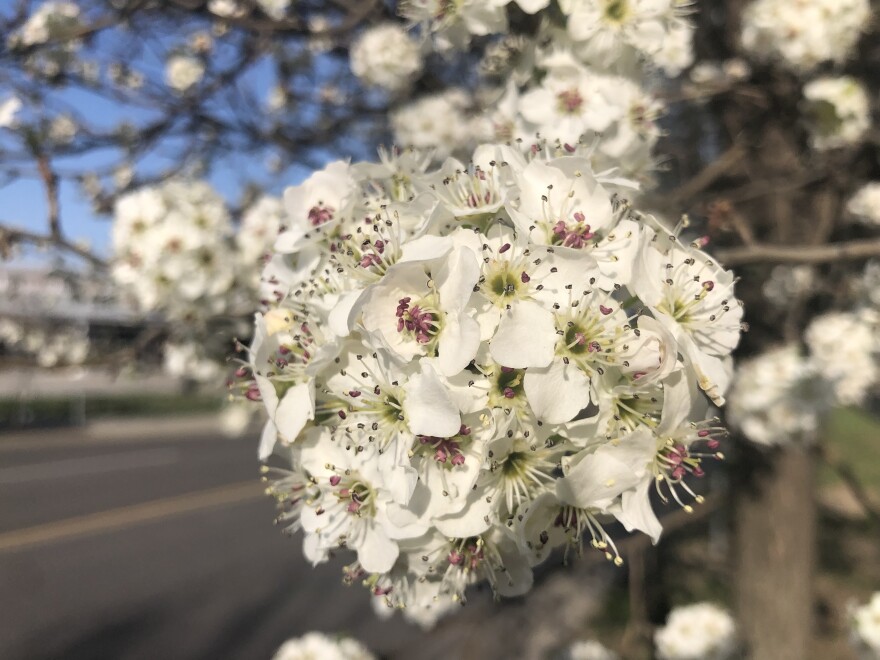At least three states have banned these trees outright, and others discourage the public from adding them to their yards.
Local conservationists will cheer if Kansas moves forward with a ban on selling popular but invasive ornamental pear trees in the state.
The Kansas Department of Agriculture wants to curb the spread of Callery pear trees — a species usually sold under cultivar names such as Bradford, Cleveland Select, Chanticleer and many more.
Its proposal will get a public hearing on Jan. 24 in Manhattan.
Ohio, Pennsylvania and South Carolina have already adopted bans, NBC reported last year. And public agencies and university extension departments in other states, such as Oklahoma and Minnesota, discourage people from planting the species.
Callery pears have been popular for decades because of their white flowers in spring and their red foliage in fall.
But they’re escaping cities and suburbs and spreading into prairies and woods, where they have few predators and so outcompete native plants.
Entomologists such as Douglas Tallamy have increasingly appealed to the public to avoid Callery pears and certain other nonnative species that undercut the food web for insects and birds.

A native goldenrod or wild plum can feed scores of caterpillar species, they point out, while a nonnative Callery pear cannot.
The pears have also become a land management headache for public agencies and private owners of large properties. The tree now grows wild in at least half of Kansas counties, spreading into rural areas along highways and taking over pastures.
Unlike many other trees, this species doesn’t die if it’s chopped down or burned. That means land managers have to use herbicide.
Each year, workers at Johnson County Park and Recreation District spend many hours trying to root out the species on public land.
Kansas’ agriculture department could adopt the proposal this year, but it wouldn’t enforce the restrictions — which carry potential criminal penalties for violators — until 2027.

The proposal is called a quarantine. Property owners wouldn’t be required to cut down existing Callery pears, but no one would be allowed to move live ones, their seeds or their rootstock.
That would mean no bringing these things from other states or selling or giving them to someone within Kansas.
Kansas and Missouri conservation groups and local governments have launched a public education campaign in recent years to explain why the trees cause problems.
Each spring, they team up to give out free native alternatives — such as redbud and serviceberry trees — to homeowners who cut down a Callery pear on their property.
Celia Llopis-Jepsen is the environment reporter for the Kansas News Service. You can follow her on Twitter @celia_LJ or email her at celia (at) kcur (dot) org.
The Kansas News Service is a collaboration of KCUR, Kansas Public Radio, KMUW and High Plains Public Radio focused on health, the social determinants of health and their connection to public policy.
Kansas News Service stories and photos may be republished by news media at no cost with proper attribution and a link to ksnewsservice.org.
Don’t miss a beat … Click here to sign up for our email newsletters
Click here to learn more about our newsletters first








